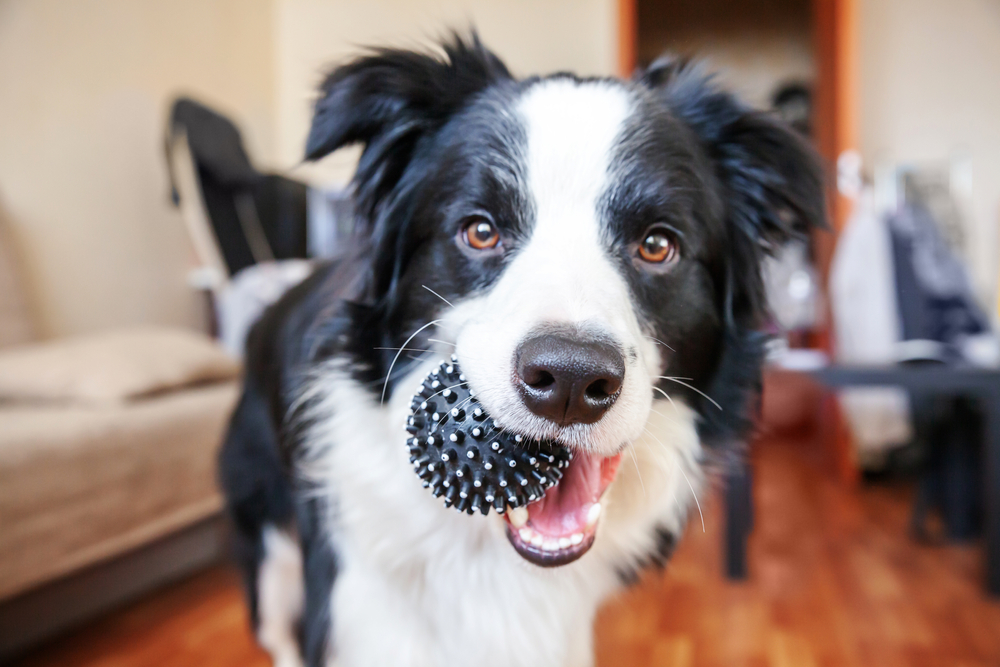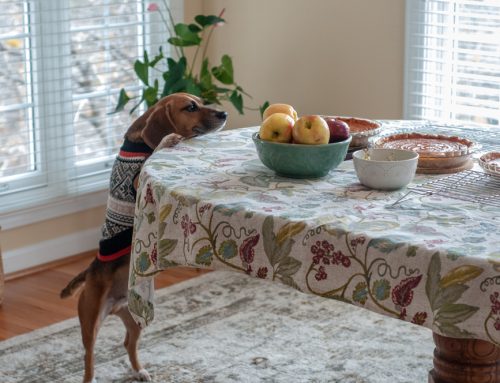At one time or another, most owners have been embarrassed by their anxious pet’s behavior at the veterinary hospital, but when you stop and think about it, we are asking a lot of our pets when we take them for an appointment. We think they will behave the same way they do when they’re relaxed at home, and we often rely solely on a pre-visit pep talk to pump them up —“OK, Stella, you’ve got this. Show everyone at the clinic what a good girl you are, and you’ll get a puppuccino!”
We all want our pet to earn their veterinarian’s metaphorical gold star, but we set them up for failure when we don’t prepare them for their visit. At Sale Creek Veterinary Services, we want you and your pet to have the best experience possible, so we have compiled the following tips to help alleviate your pet’s fear and anxiety at their next visit.
Schedule your pet’s appointment strategically
Set a reminder for one month before your pet is due for their annual wellness examination, to ensure availability, and to give yourself time to prepare for the big day. Consider the following factors when scheduling your pet’s appointment:
- Your upcoming calendar — Select a day that’s wide open, so you don’t feel rushed or distracted. For example, avoid scheduling an appointment during your lunch hour on the day of a big work presentation. Pets feed off their owner’s emotions, and if you feel stressed, they will, too.
- Travel time — Before your pet’s appointment, factor in plenty of travel time, plus time for a celebratory, post-appointment activity for you both to decompress.
- Your pet’s triggers — Think about potential anxiety-producing situations you can minimize or avoid. Maybe your dog is fearful of men—request a female technician. Perhaps your cat hates the metal exam table—let us know so we use plenty of soft towels, or examine them in your lap. Our team strives for a positive, comfortable experience, and we will partner with you to ensure your visit is as stress-free as possible for you and your pet.
Make a list of questions for your veterinarian and bring important items
Your attention will largely be focused on your pet during their appointment, and you may forget to ask important questions regarding their health. Ensure you get the most out of your visit by making a list of questions, such as how to administer your pet’s medications, parasite prevention, or their vaccination schedule, that you take with you.
Train your pet for a successful visit
Being examined does not feel natural to your pet. Help them become more comfortable during an examination by training them to make positive associations with the following:
- Body handling — A thorough examination includes feeling your pet’s body from head to toe. Introduce your young pet to body handling, to show them this is normal and safe. Teach an older pet to accept handling through positive reinforcement—when they allow their ears and feet to be manipulated, for example, reward them with praise and a tasty treat.
- Carriers and kennels — Few pets enjoy being confined, but carriers and kennels can keep them secure during transport, in the lobby, and while recovering from surgery. Help your pet associate positively with their carrier and kennel by feeding them inside, and making them accessible at any time.
- Car rides — A car ride shouldn’t always end with a visit to the vet. Vary your destinations to include positive places like a hiking trail or dog park, so your pet does not associate the car with a stressful activity.
Bring in reinforcements for your pet

When your pet is surrounded by the veterinary hospital’s unfamiliar sights, sounds, and smells, distract them with treats and a favorite toy from home. Many veterinarians recommend ensuring your pet has an empty stomach, and using treats as positive reinforcement throughout the examination. Consider bringing the following items to your pet’s appointment:
- Calming wraps — Wraps create a calming effect by applying pressure to your pet’s torso, similar to swaddling a crying infant.
- Muzzle — If your dog’s anxiety may cause them to react inappropriately, a soft muzzle can reduce their emotional distress, and also protect the veterinarian during an exam. Dogs should be muzzle-trained in advance, and wearing the muzzle when they arrive.
- Anxiety medication — Anti-anxiety medication is an option for pets with extreme anxiety and fear who need additional help. Speak with your veterinarian to determine if your pet is a good candidate.
- Favorite toy — If your pet has a favorite toy, bring it so we can play with them, which will often ease their anxiety.
At Sale Creek Veterinary Services, we understand that your pet is not always thrilled to visit us, and we promise we won’t take it personally. However, we want them to have as stress-free an experience as possible while we provide the highest quality care. Call us with any questions about preparing your pet for a stress-free visit, or to schedule your pet’s next appointment.







Leave A Comment